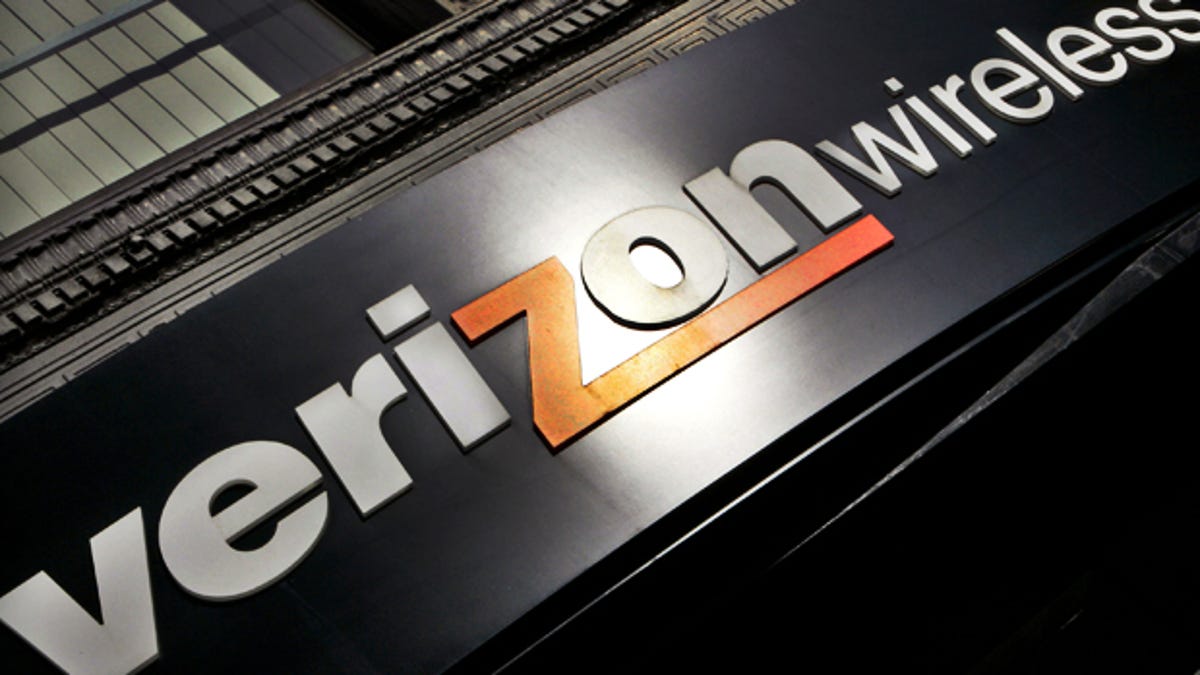Verizon's Q2 profit up 13 percent on wireless strength
Wireless-customer growth continues to slow, but the result is a near-term boost to earnings. The company sold 5.9 million smartphones in the quarter.

Verizon continues to see a slowdown in customer growth, but oddly enough, that's producing strong profits for the telecommunications giant.
The New York telecommunications company posted a profit of $1.83 billion, or 64 cents a share, up from $1.61 billion, or 57 cents a share. Revenue, meanwhile, rose 3.7 percent to $28.55 billion. Analysts, on average, forecast earnings of 64 cents a share and revenue of $28.56 billion, according to Thomson Reuters.
Verizon, along with the rest of the industry, is experiencing a slowdown in new contract customers -- a carrier's bread and butter -- given saturation of the market in which virtually every consumer already owns a mobile phone. But fewer customers means higher profits in the near term, because the carrier has to pay less in subsidies to handset manufacturers.
Verizon has been aggressive in cutting costs in an effort to improve profitability. As a result, it said it was on track for double-digit earnings growth this year, also helped by continued cost cuts.
Despite slower customer growth, the wireless business continues to hum financially. Its service revenue rose 7.3 percent to $15.8 billion.
"The wireless business is firing on all cylinders," Verizon Chief Financial Officer Fran Shammo said during an investor conference today.
The company added 1.2 million total net new customers, and 888,000 net contract customers, a significant decline from the 2.2 million total customers and 1.3 million contract customers it signed up a year ago. It ended the period with 94.2 million retail customers.
Verizon was mum on the number of
The company has attempted to drive growth by upgrading existing customers to a smartphone and more expensive phone plan, nabbing customers away from rivals, and connecting non-traditional devices such as tablets and photo frames. At the end of the period, half of its customer base owned smartphones.
The company also recently began offering a shared data plan to customers, while also killing off many unlimited data plans in a move that caught the company a lot of criticism. AT&T yesterday unveiled a similar plan.
The turnover rate for Verizon's contract customers fell 5 basis points to 0.84 percent in the second quarter, with total turnover rate falling 11 basis points to 1.11 percent.
Jonathan Chaplin, an analyst for Credit Suisse, said all of the wireless metrics beat his expectations, allowing for the strong quarter.
The company continues to cut more costs out of the business. Shammo said he is on track to cut $2 billion of expenses out of the wireless business.
The wireline business continued its declining, with operating revenue falling 3.1 percent to $9.9 billion. The business has been in a steady decline as consumers drop their traditional home-phone lines and businesses are slow to hire new workers.
Verizon added 134,000 FiOS Internet connections and 120,000 new FiOS TV connections in the period. The numbers were much weaker than expected, which Shammo acknowledged, saying the company was adding more expensive price plans and bundles later this year as it focuses more on profitability than growth.
The company had previously bet its growth on its pricey fiber-optic rollout, but has more recently put wireless at the forefront of its business.
Verizon is attempting to close a deal to acquire spectrum from several cable providers, but faces resistance from regulators concerned it may own too much spectrum, and that its cross-selling deal for wireless and home Internet and phone service may quash broadband competition.
Shammo said he still expects the deal to close this summer.
Updated at 6:53 a.m. PT: to include additional comment from the CFO and an analyst.

